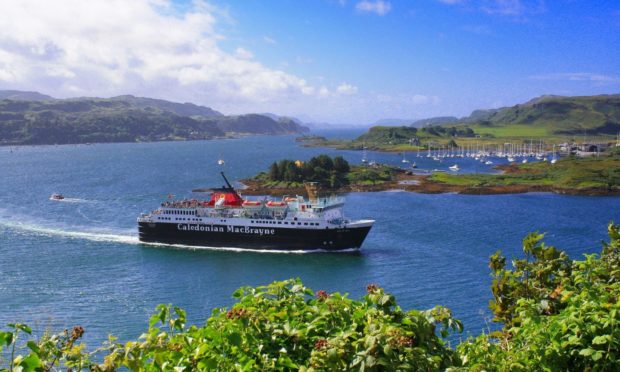CalMac ferry services have been plagued by issues over the last few weeks and now it’s claimed fewer than half of its passengers on their services are complying with mask-wearing guidance.
Several ferries within the CalMac fleet have had to be taken out of service due to positive Covid cases on board.
The subsequent guidance requires the operator to deep-clean the vessel and replace the crew each time.
This has caused major disruption to the vital ferry services that carry thousands of passengers between the western isles and the mainland.
Last month the MV Caledonian Isles which operates the popular Ardrossan to Arran route was withdrawn from service due to a crew member testing positive for Covid-19.
This was followed by the MV Isle of Mull where, each time, a new crew is required to sail. Crew shortages have caused some sailings to be cancelled.
While this causes disruption to services, it is further impacted by breakdowns that occur due to the ageing ferry fleet.
It is now being claimed that fewer than half the passengers travelling on CalMac services are wearing face coverings despite the efforts of staff and the operator’s guidance that mask should be worn on vessels.
What is the impact of this failure to comply?
CalMac managing director, Robbie Drummond, spoke to the BBC’s Good Morning Scotland about the disruptions.
He said: “We are now carrying record numbers back to 2019 figures, but in the last 31 days we have had 10 days of being disrupted with Covid cases.
“This is where we cannot sail and have had to deal with positive cases onboard and the issues that arise from that, which is very challenging for us.
“We are doing everything we can to inform our passengers by using onboard emails, posters at ports and frequent messages on board however we don’t have enforcement powers.”
Crew members on CalMac ferries are required to live aboard the vessel for two weeks during their work schedule.
The crew regularly remind passengers that when onboard a ferry – as with all public transport in Scotland – a face mask is required although it is not a requirement for passengers when outside on the vessel.
Mr Drummond added: “Compliance back in the early pandemic was well over 95% and on some routes it is dropping to below 50% and we are just encouraging our passengers to do everything they can to protect themselves and our services from further disruption as cases continue to be at a high level.”
